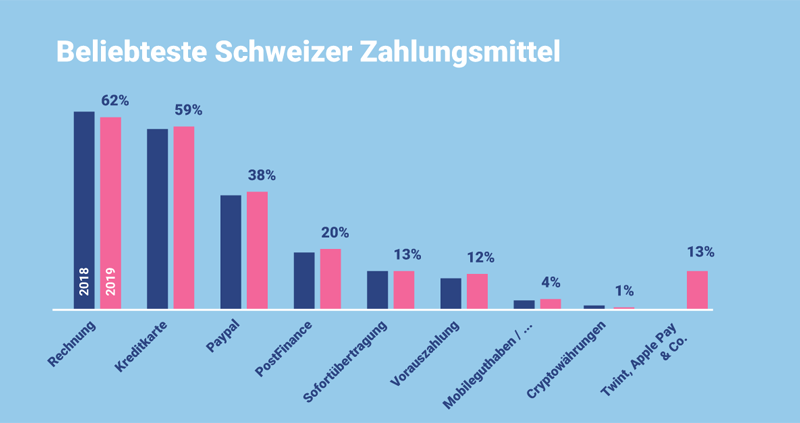
Running an online shop in Switzerland: What should you consider?
Creating a professional online shop in Switzerland is a challenge for an SME. eCommerce is more than just downloading a shop system and uploading a few images. The processes and effort behind the scenes can be complex: logistics must function perfectly, marketing takes time, and employees need to be flexible. How do you go about setting up your own online shop?
Selecting the eCommerce system
eCommerce is often equated with selling products through your own online store. However, there is also the so-called marketplace model: for companies that don’t want to deal with online shops, marketplaces can be a good alternative.
Marketplace: It doesn’t always have to be your own online store; established platforms such as Amazon, eBay, galaxus.ch (retail), renovero.ch (craftsmen), or eat.ch (restaurants) can also be used for sales. It is important that you can manage these platforms efficiently.
- Advantage: These platforms already have large visitor flows.
- Disadvantage: The entrepreneur is charged a commission.
Your own store: With your own online store, you are considerably more flexible, but you have to invest a certain amount of time and money into setting it up. The advantage is that you are and remain your own boss and that you control the entire process. Furthermore, you don’t pay any fees to third parties.
- Advantage: 100% flexibility and data sovereignty.
- Disadvantages: Maintenance costs, administrative overhead
In the long term, we recommend using a combination of your own online store and selling through marketplaces wherever possible.
Domain
This is an important topic if you run an online shop in Switzerland, which can quickly cause confusion. What is a domain? And why should you register your own domain name?
The domain is the Internet address for your shop. In other words, the name that a user enters on Google or in the browser. If you want to promote your own brand, this is the ideal approach. You don’t have a domain? No problem. If you register with MyCommerce, you will receive a single page website that we call the “starter site” (demo shop), including a subdomain. It has a “free domain” or URL in the form of https://store1234567.MyCommerce.shop/.You can change the name “Store1234567” at any time, e.g. to https://meiergmbh.mycommerce.shop/.
There are three main areas for their own domain: First, Second and Third Level Domain. Using the example of www.mycommerce.ch, is is defined as follows:
- First Level Domain: «.ch»: The suffix is defined either for a certain country of origin (e.g. .ch for Switzerland) or for a specific topic (e.g. .com for company). We recommend the .ch suffix for Swiss shops.
- Second Level Domain: «MyCommerce»: This is the actual domain name. Most commonly, it is the name of the company (e.g. Swisscom) or the name of a product (e.g. MyCommerce).
- Third Level Domain: “www.”: This can be distinguished because it’s separated by a dot in front of the domain name. For a normal page you usually need www.
Rights and duties of a shop operator
For a deeper insight, we recommend reading our article on legal obligations. Here’s an overview.
Imprint obligation: On a shop page, the customer must have access to detailed information about the site operator. The customer wants to know who he’s dealing with. The following information must be clearly visible on the website:
- Company name
- Address (street, no mailbox address)
- Post code / city
- Telephone number
- Email address
- Name of the contact person
- If available: reference to the commercial register entry or UID number
Terms and Conditions: The General Terms and Conditions regulate the legal business and are not a marketing tool. Without terms and conditions, the disposable legal regulations of OR, UWG, etc., however, advise each dealer to have their own terms and conditions and to make them part of the transaction.
Data protection declaration: From the moment when sensitive customer data (name, address etc.) is collected, an online shop is subject to the federal law on data protection. In order to show your customers that you are a serious provider, it is advisable to make a data protection declaration.
Important publications: Swiss legislation does not provide for any real “overall rule” on the subject of consumer law. The main components are regulated in the bond law, but other laws also include paragraphs which regulate business transactions between providers and buyers. Below is a non-comprehensive link collection:
- OR – bond law
- UWG – law against unfair competition
- PBV – Price announcement ordinance
- DSG – data protection
Means of payment
If you run an online shop in Switzerland, a means of payment should not be omitted. In addition to buying on account, the credit card is the most popular means of payment in Switzerland. The choice of which means of payment to offer is up to you.

Before you offer different payment methods, you first have to clarify which contracts and agreements are required. For credit cards, for example, you need a contract with an acquirer (e.g. SIX) and a contract with a payment service provider (DataTrans). We recommend planning enough time for this work.
You can find more information in our article about payment methods.
The process for the customer
Design the customer experience in your shop to be as simple as possible and make sure that your processes are as consistent as possible.
- Carefully thinking through, planning and optimizing all processes from ordering to billing, delivery and return, to possible complaints.
- Guide your customers through the process as easily and intuitively as possible. An appealing design, good product information and detailed images create trust.
- Offer help with every step, e.g. via phone, live chat or email. Ensure short response times so that the customer doesn’t leave.
Marketing
Pay a lot of attention to marketing:
- Google: The more prominently your company appears in search results, the better. Invest in the search engine optimisation (SEO) of your online shop by writing titles attractively and incorporating customers’ search terms into the text.
- Email marketing works well to bind existing customers. Programmes such as MailChimp support you with shipping. Note the data protection regulation: your contacts must be able to unsubscribe from emails.
- Social media: If you have an appearance on Facebook or Instagram, you should communicate regularly. You can reach new target groups via sponsored contributions.
You can find more information in our article “Marketing for Beginners”.
Shipping and returns
Possible logistics partners are the post office, courier services, local taxi companies and their drivers. The costs that arise when packing, franking, shipping and returning are not to be underestimated and are not always easy to optimise, because the customer wants an inexpensive, quick and safe delivery and a suitable way of handling of returns.
Switzerland does not maintain any legal right of return in online shipping. The industry association recommends an accommodated right of return within 14 days. Stricter rules apply in the EU: a customer can always return the product within a period of 14 days after receipt.
Conclusion – online shop in Switzerland
As you can see, there is a lot to do to start a successful online shop in Switzerland. With the right partners and MyCommerce at your side, this is easier than ever.
You can find more information about creating an online shop here.